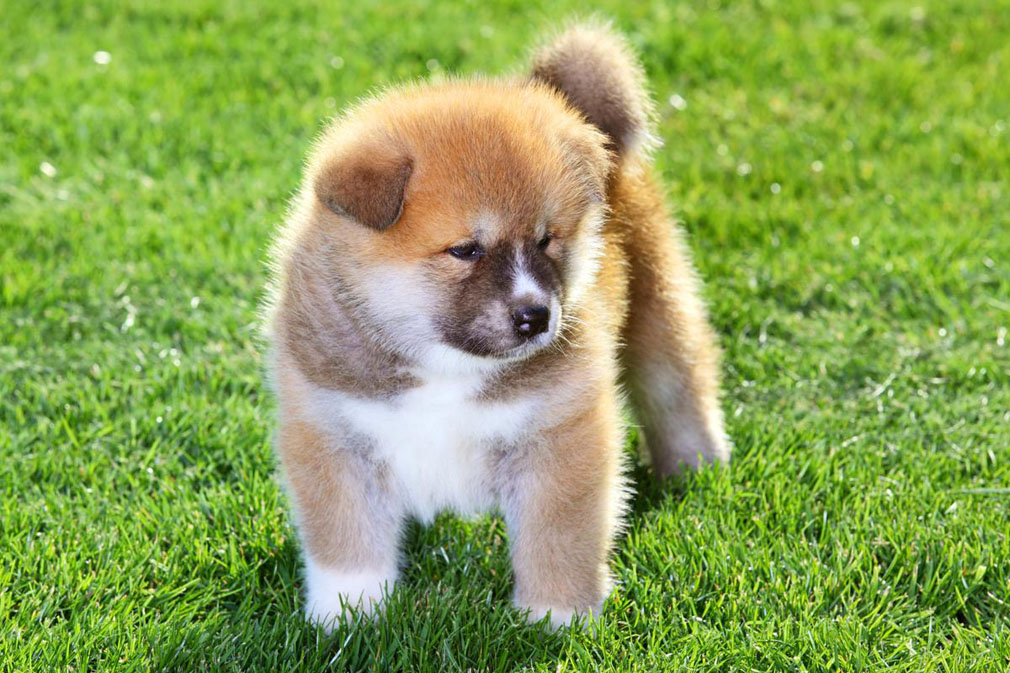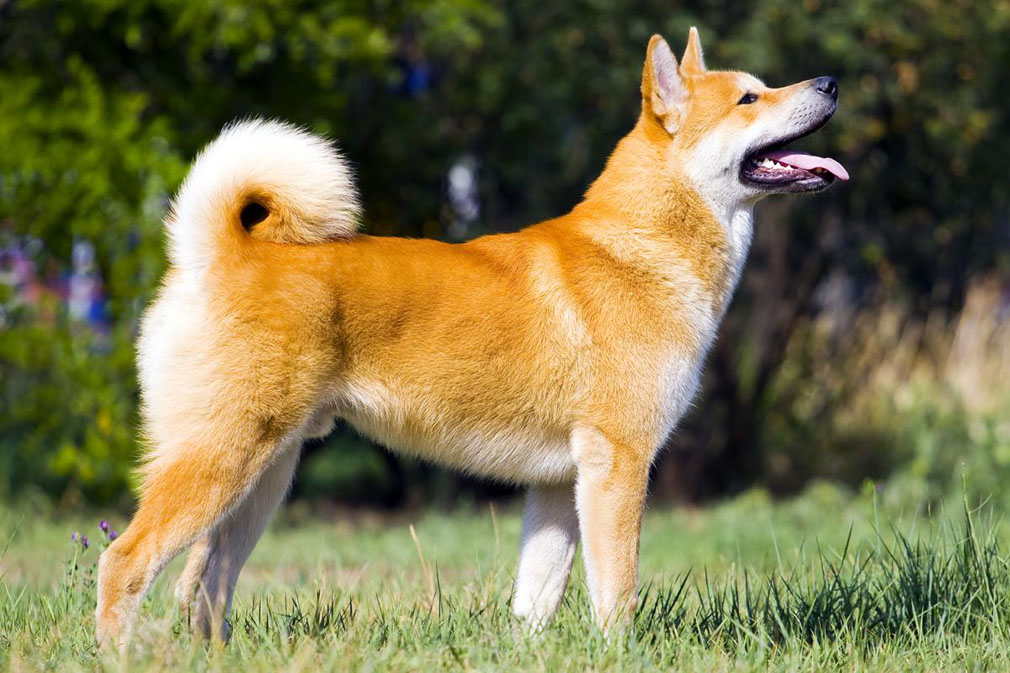Akita


 Puppy
Puppy
 Fully Grown
Fully Grown
Akitas are autonomous and independent dogs that tend to build a strong bond with their owners. If you are after a social butterfly, this breed will not match what you are looking for - they can be friendly to strangers or completely ignore them. This behaviour may come across as arrogant, but an Akita simply chooses their friends selectively.
Akitas tend to be very calm around the house and do not usually bark much. They are a strong-willed breed that is recommended for an experienced dog owner, as the handler needs to be confident and consistent in order to earn the dog's respect and trust.
Their calm nature gives them the ability to concentrate and work for a long time. Mental stimulation is a must, paired with lots of daily exercise.
The Akita has had a long and troubled history. It is said that the Akita originated in Japan and was originally name the Odate Dog, but the name was changed to the Akita in 1931.The Akita's ancestors worked on their own or in pairs. This may explain why they are not usually the best choice for multi-dog households or off-leash dog parks.
| Weight: | 38-50 kg |
| Health risk: | Very high |
| Life expectancy: | 11-15 years |
| Coat: | Medium |
| Grooming intensity: | Medium |
| Monthly cost (food): | High |
| Trainability: | Medium |
| Activity level: | High |
There are many sources to get your Akita from. Considering the number of homeless dogs without a future, we strongly encourage you to consider rescuing a dog. Your local shelter or rescue organisation can be a helpful place to start, or try contacting your local or national breed club or a reputable breeder and asking if they have pets available for rehoming. Many rescue organisations have active Facebook pages, which can also be a good place to enquire.
Here are some links that could be useful for finding an Akita to adopt:
To help your rescued Akita to settle into your home, our Rescue Dog Guide gives you tips and advice on bringing your rescue dog home.
If you decide you’d prefer to get your Akita from a breeder, the following guides will help you to find a responsible breeder:
The following organisations will be able to help you find breeders in your state in Australia. They will also be able to connect you with your local breed clubs, which are always a great source of information in regards to finding good breeders and rescue organisations.